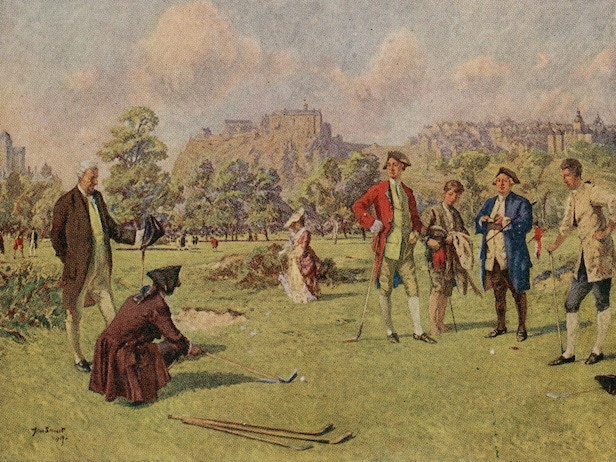Golf
Is golf really Scottish?

Ask almost anyone about the origins of the sport of golf, and you’ll get the same answer: It was invented in Scotland. Ask them a follow-up—how do you know?—and things start to get complicated.
The truth of the matter, as with all questions of history going back far enough to where written records are scarce, is obscured by the fog of time, and to arrive at any reliable conclusion, we have to scour the records such as they are. That means written records and illustrations going back to the 1300s, and not just in Scotland, but all over Europe.
The first mention of golf in Scotland comes in 1457, when the sport was banned by King James II. The reason? Along with football, too many people were playing, and it was taking time away from archery practice, which was critical to the safety of the nation at a time when they were perpetually at war with England. That document is typical of what we see of golf from the historical records at the time—it was never mentioned directly, but only in conjunction with some other official business, which could take the form of something as serious as a national ban, or as minor as an archbishop gaining permission to breed rabbits on the links at St. Andrews. These mentions come few and far between, but they sketch out a tentative early history of the sport in Scotland.
But what happened before all that? Was the game invented by Scottish shepherds, as popular mythology would have it? Was it a Celtic sport that was adapted into its current form? Or did it evolve from similar sports in the “low countries” of the Netherlands, Belgium, and northern France? There is a wealth of evidence for the latter hypothesis especially, including a series of intriguing texts and drawings that hint at a different origin than the one we’ve been taught.
On this week’s Local Knowledge podcast, we examine all the existing evidence and try to determine where this sport truly came from in the far reaches of history. Listen below, or find the episode wherever you get your podcasts.


)






